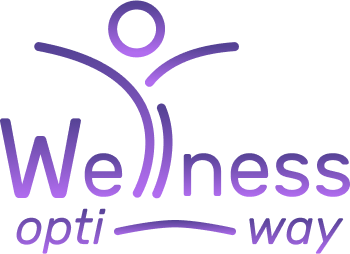Adolescents worldwide, especially girls, have used non-prescribed drugs, dietary supplements and other weight-loss products at a “high level,” according to a new analysis.
Based on a review of dozens of studies over the past four decades, researchers estimate that about 9% of adolescents in the general population have used over-the-counter weight-loss products in their lifetime, about half of whom had used them in the past month. Diet pills were the most common products, used by about 6% of adolescents in their lifetime, followed by about 4% who used laxatives and 2% who used diuretics.
These products are risky to both the physical and mental health of children, and they’re not medically recommended for healthy weight maintenance. Previous research has linked the use of non-prescribed weight-loss products to eating disorders, low self-esteem, depression and substance abuse in teens. They have also been associated with poor nutritional intake in adolescence and unhealthy weight gain in adulthood.
Dr. Paula Cody, medical director of adolescent medicine at the University of Wisconsin School of Medicine and Public Health, warned about the dangers of diet pills and supplements more than six years ago after hearing enough patients ask about supplements to lose weight or gain muscle — and the issue has only grown.
US: National Eating Disorders Association
The NEDA has a confidential, toll-free helpline at 800-931-2237 as well as an online click-to-chat service. For 24/7 crisis support, text “NEDA” to 741-741.The NEDA also has a list of online and free or low-cost resources.US: National Association of Anorexia Nervosa and Associated DisordersANAD runs a helpline at 888-375-7767 from 9 a.m. to 9 p.m. CT and provides links to support groups and treatment providers.Australia: National Eating Disorders CollaborationA call center at 800-334-673 and online chat run by the Butterfly Foundation is open 8 a.m. to midnight AET every day except public holidays.UK: Beat (formerly known as the Eating Disorders Association)Helplines for England, Scotland, Wales and Northern Ireland are open 9 a.m. to midnight weekdays and 4 p.m. to midnight weekends and bank holidays, every day of the year.
“The incidence of eating disorders has increased pretty dramatically after the pandemic. We’ve seen the numbers skyrocket,” she said. “So I do think that the concern I had before, which was not a small matter then — I’m even more concerned now.”
One study from 2022 found that hospital admissions for eating disorders among children in the US grew 10 times faster in the first year of the Covid-19 pandemic than in the years prior, and other studies have shown an increase in emergency department visits, too. The new study analyzed the use of diet pills and other weight-loss products in more countries than just the US, but prevalence was most common in North America.
When Cody is working with patients who have an eating disorder, she said she’ll sometimes see dramatic changes to their heart rate, blood pressure or sleeping patterns.
“It can be pretty significant,” she said. “And you’re trying to figure out, ‘What is the cause of this?’ And the only change has been that they started a diet pill that contains caffeine.”
Some patients are able to stop taking the pills when they understand the negative health consequences they’re causing, she said. But for others, the eating disorder convinces them that their health is less important than the number they see on the scale.
“In a population who feel like they will do whatever it takes to get to lose weight, diet pills can be a very, very intriguing thing to add to the arsenal,” Cody said.
Childhood obesity is increasing worldwide. About 39 million children were obese in 2022, according to the World Health Organization. In the US, childhood obesity is a “serious problem,” according to the US Centers for Disease Control and Prevention, affecting nearly one in five children ages 2 to 17.
But weight loss programs within the formal health care system are built to protect against some of the risks; that doesn’t happen when teens turn to diet pills or other non-prescribed weight-loss products, experts say.
“When patients are in that space where they’re feeling a bit more desperate to achieve weight loss, and they’re doing things unguided, undirected and opting towards less healthy choices, that certainly can lead to more problematic mental health behaviors or eating behaviors,” said Dr. Sarah Raatz, a pediatrician with the University of Minnesota’s Center for Pediatric Obesity Medicine.
“The new clinical practice guidelines (from the American Academy of Pediatrics) do mention that a structured program, like our clinic, where you are meeting with health care providers and dieticians and you’re getting a lot of guidance is actually going to be protective against that.”
There are no formal standards for how pediatric weight management clinics work, Raatz said, but patients in her clinic have appointments every couple of weeks or months. Mental health screenings happen at each visit, and a team of mental health professionals are available.
Patients and their families occasionally do ask Raatz about advertisements they saw for a supplement to aid in weight loss — things like apple cider vinegar gummies, she said — and she actively discourages it.
“I explain that it’s not regulated, (the benefits are) not evidence-based, it’s just not the way we would recommend going about treatment,” she said.
Still, the researchers of the new study write that it’s “alarming” how easy it is to access them, and “interventions are urgently required to prevent and regulate the use of weight-loss products in this population.
